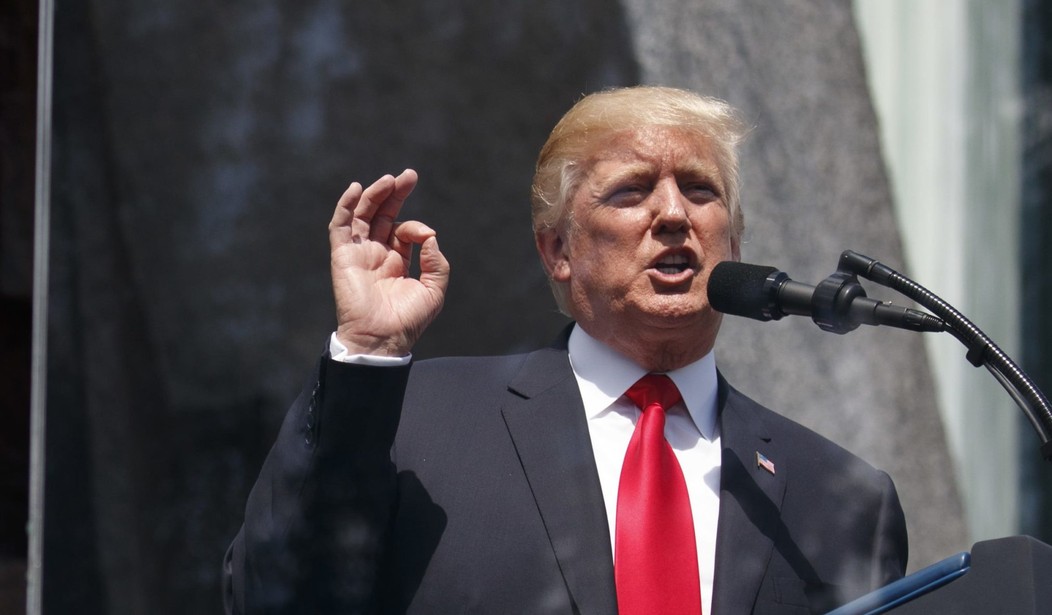If you want to know why Donald Trump will go down in history as a great president, listen to (or read, when it is available) his speech in Krasinski Square, Warsaw today.
Advertisement
Yes, there is a lot of the usual diplomatic persiflage: “Thank you, President Duda. Thank you, Poland.” But be an adult and distinguish the gem from the setting. While the anti-Trump press was busy running stories warning about “unease in Brussels” over Trump’s visit to Poland, Trump once again totally outflanked his critics. Those who have ears, let them hear:
- The United States is absolutely committed to securing Poland’s access to alternative sources of energy. Now, to whom do you think that was addressed? What country would use access to oil and gas as political blackmail (do what we say or you can’t warm your homes, light your streets, run your factories)? Who would do such a thing?
- The United States is absolutely committed to its trans-Atlantic partnership. That partnership, said Trump in his aspirational mode, has never been stronger: suitably translated, that means that he wishes to assure that it will never be stronger. It was a proffered hand. Will the EU bureaucrats reach out and grasp it?
- Speaking of bureaucrats, Trump also—mirabile dictu—warned about “steady creep of government bureaucracy” that, left unchecked, saps a people’s will and makes the flourishing of individual initiative, the very marrow of freedom, impossible. This was a direct kick against the administrative state: I like to see it. Drain the Swamp.
- Trump reaffirmed his absolute commitment to Article 5 of the NATO agreement — the bit that pledges members to “collective defense”: an attack on one member is an attack on all. He praised Poland for stepping up to meet its statutory financial commitment to NATO and urged other European countries to do the same. A strong NATO means a strong Europe.
- Trump reaffirmed his commitment to battle against “radical Islamic terrorism” and other forms of extremism and highlighted his call in Riyadh in May for Muslim countries to step up and help quash the violence of jihad.
- He noted other challenges faced by the West, including cyber-warfare and Russia’s “destabilizing activities” in Ukraine, Syria, and Iran.
- But the best part came about three-quarters of the way through. After reminding his audience about the million people who gathered to hear John Paul II celebrate Mass in 1979, he asked: what did the people want? Answer: “We want God.” This led into the heart of Trump’s speech. The prerequisite for the success of Western civilization is not material riches. Economic prosperity and military might on their own are not sufficient. The critical leaven is the confidence in core Western values: such things as free speech, the equality of women, respect for individual rights, the rule of law, the affirmation of faith and family. Hence, the “fundamental question” facing Western nations today is whether the people continue to nurture the cultural self-confidence in those fundamental values. If they do, the West is unbeatable. If those values dissipate, the West is lost. “As long as we know our history,” Trump said, “we will know how to build our future.” Trump spent a lot of time in his speech rehearsing Poland’s heroic resistance to Nazi atrocities in the Warsaw uprising and its equally heroic resistance to Soviet aggression during and after the war. Not since Ronald Reagan has an American president gone so clearly to the nub of what makes the West great and what threatens that greatness.
Advertisement









Join the conversation as a VIP Member